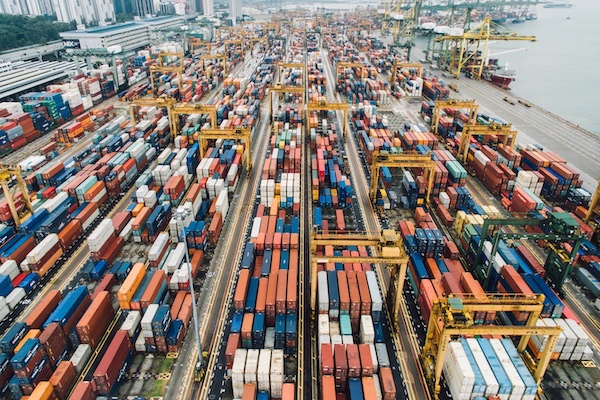Blockages in supply chains and price increases are hitting the economy hard shows AHK Romania survey
September 06 2021

The Coronavirus pandemic continues to have a strong impact on companies, especially in terms of supply chains. According to a survey conducted by AHK Romania among companies with German capital in Romania, delivery problems, as well as significant increases in prices for intermediate products and raw materials cause major problems for German companies operating internationally. This applies to all sectors and all companies, regardless of size.
81% of the companies surveyed report price increases or supply difficulties. "Companies in the industry are currently facing a new challenge from the Coronavirus pandemic. Not only the lack of products and the evolution of prices themselves cause major problems, but especially the lack of predictability resulting from them. Supply chains are becoming increasingly "unplannable" as sudden, unplanned changes in business partners' supply chains make their own production increasingly unpredictable, with many very short-term plan changes. This also leads to increased costs ", says Sebastian Metz, general manager and member of the Board of Directors of AHK Romania.
Companies are currently feeling the effects of supply bottlenecks and price increases, especially in the case of steel and plastics (48.6% each), but neither aluminum (25.7%) nor wood (23%) can be affected. purchased in sufficient quantities or only at significantly higher prices. There is also a massive shortage of semiconductors in the automotive industry. Companies cite increased demand (64.7%) as the main reason for raw material blockages. Also, more than half consider stopping production at suppliers as a reason for lack of raw materials (58.8%) due to pandemic closures or hygiene measures, medical leave and transportation problems (32.4%). ). Due to lack of supply, 78% of companies are currently facing higher purchase prices for their products and services. "This problem is increasingly becoming a limiting factor for the business activities of companies and, therefore, in further economic development. And, of course, it also has a very direct impact on the many investment projects of public administrations, especially in terms of investments in infrastructure expansion, for example in the reconstruction and recovery programs at EU level ", continues Sebastian Metz.
In many companies there are also longer waiting times (62.5%) for raw materials and goods ordered, as well as longer planning effort (almost 47%). In many cases, existing orders cannot be processed (37.5%), and delivery difficulties lead to lower sales (40.6%). 28% of companies had to reduce or even stop production.
More than 60% of companies are forced to transfer price increases to customers. They also respond to these challenges by looking for new or additional suppliers (52.6%). For most of them, the European Union or the rest of Europe is at stake. 44.7% are thinking of increasing the level of stocks, where possible. Another measure that 21% of respondents are considering or have already used would be staff adjustments, such as the implementation of Kurzarbeit, reduction of overtime, staff reductions. "Several solutions are currently being pursued by companies: diversifying suppliers and supply regions, increasing stocks, changing products, etc. But everything takes time and, in most cases, this leads to increased costs ", says Sebastian Metz.
Most of the interviewed companies (43%) do not expect an improvement in the supply of raw materials, intermediate products and relevant goods before 2022.
The survey was coordinated by the Union of German Chambers of Commerce and Industry (DIHK). Nearly 3,000 companies from around the world were interviewed. 43 companies from Romania participated. The survey took place between July 27 and August 9, 2021.
General - Latest news






